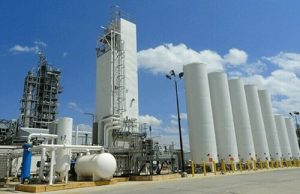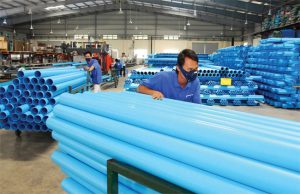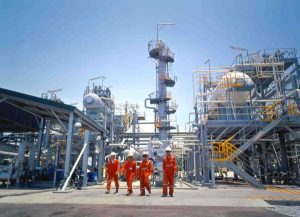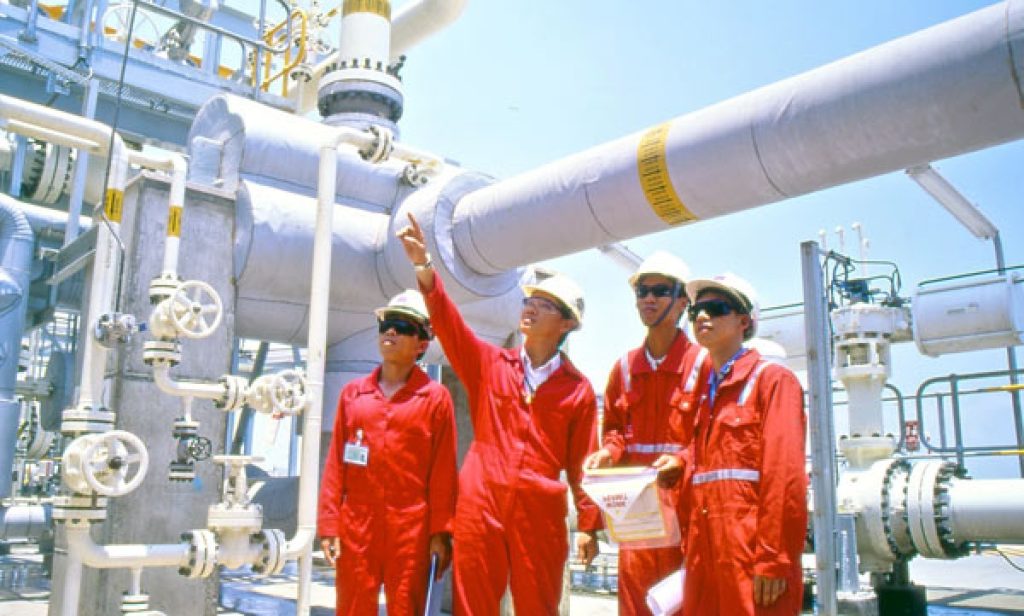What are industrial chemicals?

Industrial chemicals are all the products that come from the chemical industry. Industrial chemicals are manufactured and developed from raw materials such as air, water and minerals.
Nowadays, in the stage of industrialization, there has been a significant increase in the demand for industrial chemicals for various applications. Industrial chemicals are involved in every aspect of our lives.
Introduction
With the development of human society and industries, the use of industrial chemicals has increased greatly in the past few decades. There is no doubt that these chemicals are an indispensable part of industrial production and are very convenient for our daily lives. However, these industrial chemicals are released into the environment in large quantities during the production, use and disposal processes. They are widely distributed in the air, soil and water and cause great harm to the surrounding environment and human health.
Some industrial chemicals, especially organic pollutants, are highly toxic and difficult to remove. Moreover, industrial chemicals also include endocrine disrupting chemicals that have adverse health effects in organisms. All of these compounds can cause adverse effects on human health and damage the ecosystem. Since these industrial chemicals pose great risks to the environment, we need to pay great attention to recognize them.
Industrial chemicals are widely used in all kinds of industries. Although the use of these chemicals has played a major role in the development of industry and society in the past few decades, most of the current pollution problems are becoming more serious due to the widespread use of industrial chemicals in the environment.
It is estimated that there are between 60,000 and 90,000 industrial chemicals in commercial use today. Industrial chemicals are released through evaporation or leakage, either during the product life cycle or after final disposal.
Although not all of these elements pose a toxicity risk, many will pollute the environment through leakage during storage, through use in the environment or from direct treatment or waste containing them. In addition to their industrial use, a large number of chemicals are used in domestic products and therefore their use and disposal are less controlled than industrial chemicals. For example, industrial chemicals such as food additives, surfactants and drugs are used directly in human life.
Although industrial chemicals play an important role in improving our health and living standards, they have caused significant problems for the pristine environment without a voice. Man-made pollutants include inorganic compounds, organic substances, heavy metals, and radionuclides. A health concern arises whenever people are exposed to industrial chemicals, even at low concentrations. This article describes the sources and characteristics of industrial chemicals, their effects on the environment, and the health of humans or other living organisms.
Classification of Industrial Chemicals
There are several classifications for the types of products from the chemical industry. In most cases, industrial chemicals can be divided into three main categories:
Basic chemicals
Specialty chemicals
Consumer chemicals
Basic chemicals
Basic chemicals are divided into chemicals derived from oil, called petrochemicals, polymers and basic inorganics. Most of the basic chemicals are used in the industry itself and are also sold to various industries before being converted into final products by any manufacturer. Like acetic acid is sold to paint manufacturers and many are made into esters.
Many companies use some of their chemical products as intermediates in their own manufacturing processes. There are often process clusters where the output of one process is used as an input to another process.
Petrochemicals and polymers
A large number of industrial chemicals have been produced from petroleum with increasing technological changes. The main use for petrochemicals is in the production of a range of polymers. The hydrocarbons in crude oil and gas are separated by distillation based on their differences in boiling points. These hydrocarbons are then converted into more useful products in the chemical industry.
Organic matter
These are relatively low cost chemicals used in agriculture. They are produced in very large quantities, over a million tonnes per year, and include fertilizers containing chlorine, sodium hydroxide, sulfuric and nitric acids.
Specialty chemicals
This category includes a wide range of industrial chemicals used for crop protection, paints and inks, pigments. This includes a wide range of chemicals used in industries such as textiles, paper and engineering. This class is the main profit line of any chemical industry.
Consumer chemicals
This group of industrial chemicals is the one that is used directly by the end user – the public. They include detergents, soaps and other toiletries. Much research and discovery is going on in the production of industrial chemical products that are user-friendly, efficient and environmentally safe.
Consumers of industrial chemicals

A wide range of industries (such as construction, automotive manufacturing, and other industrial manufacturing activities) require the use of industrial chemicals. Many chemical companies process raw materials such as crude oil into more refined products that are used throughout the industry.
Polymer and Plastics Industry

About 80% of the industrial chemical sector is involved in the production of polymers and plastics. A total of 26% of these goods are then used by the chemical industry itself in other manufacturing processes. Products produced by the industrial chemical industry have a wide range of uses in the food, healthcare, and transportation industries. The production of consumer goods directly uses about 10% of chemicals, but other industries indirectly involved in consumer goods also use industrial chemical products significantly.
Common industrial chemical products include pigments, synthetic rubber, polymers, resins, and explosives. Resins, salts, acids, and fertilizers are also widely used. These products are used by the consumer, agricultural, and manufacturing industries. Global consumer spending has driven a large demand for goods associated with the use of industrial chemicals. Chemical companies are very sensitive to market demands and closely follow the needs of other industries. The growing demand for consumer products and increased manufacturing activities, in turn, drive the demand for chemical commodities.
Chemical industry

The chemical industry is the largest buyer of chemical products. These products are used to create reactions and produce other chemicals. For this reason, plants that supply essential chemicals are often located next to other chemical production facilities.
Being close to businesses, producing necessary products, supplying markets, and essential components is crucial to the success of chemical companies. Because of the high demand for raw materials for many industrial chemical processes, locating plants near these chemical producers also makes sense for many companies.
Businesses with relatively lower energy costs may invest in plants close to their consumer markets to transport supplies more cheaply to this location. As demand increases in emerging market economies in Asia, production in that continent is likely to increase to meet growing consumer spending.
Oil and Gas Industry

Oil is vital to the production of many industrial chemical products. Polymers are produced from it, as are many plastics. Since plastics account for a significant portion of the chemical industry’s operations, the oil industry has a huge impact on plastics and polymer production. This influence ties the oil and chemical industries together very closely. Fluctuations in oil prices can have a huge impact on chemical prices. Some companies pass these prices on to their customers through the use of surcharges, insulating themselves somewhat from the impact of variable costs.
The pricing of other raw materials also impacts the industry and can reduce demand if costs are too high. As important suppliers, manufacturers in these chemical industries can have a significant impact on variable costs associated with increased production. Industrial chemical companies must carefully manage supply chain risks to mitigate the challenges posed by these costs.






